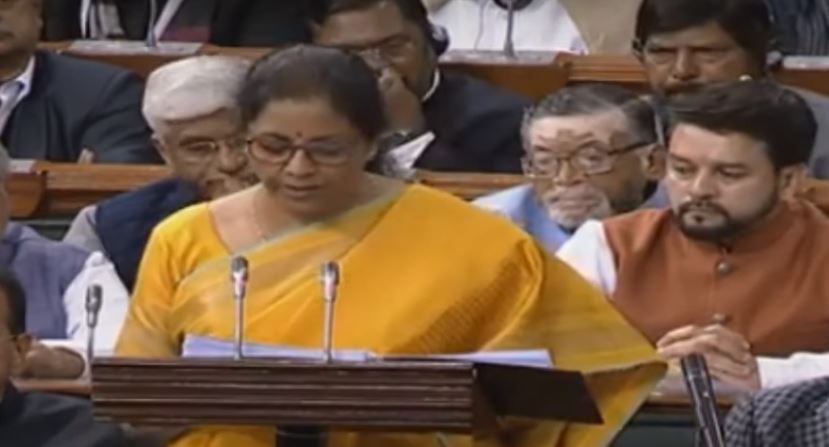Budget 2020. Climate Change Makes A Welcome Entry
 Will India Move Faster Than Temperature Rise?
Will India Move Faster Than Temperature Rise?
In India, its a given that issues of basic necessities will trump major action on climate change for some time. Cutting back on almost any resource is almost an impossibility, till climate friendly alternatives at comparative price points emerge. This was one reason why Prime Minister Modi’s pledge to phase out single use plastic by 2021 was such a big surprise, even as Mr Modi was quick to clarify that there was no way he was asking for a plastic free country.
The Union budget therefore, presented on February 1, 2020, did just enough to acknowledge the challenges the country faces, and made the first steps towards backing it with some real funding.
The country’s massive scale up of its renewable energy targets have meant that India is comfortably on course to meet its Paris accord targets of 2015. However, as it gets ready to submit its second NDC’s (Nationally Determined Commitments (NDC’s) this year, it is pertinent to quote from India’s first NDC pledge at the UN. “The average annual energy consumption in India in 2011 was only 0.6 tonnes of oil equivalent (toe) per capita as compared to global average of 1.88 toe per capita. It may also be noted that no country in the world has been able to achieve a Human Development Index of 0.9 or more without an annual energy availability of at least 4 toe per capita. With a HDI of 0.586 and global rank of 135, India has a lot to do to provide a dignified life to its population and meet their rightful aspirations.”
What that should mean is that while doing what it can to adapt using better technology and the thrift that comes naturally to it, it is also incumbent on other richer countries to do more.
That having said, two moves in the budget obviously stand out, besides the continued focus on renewable energy. One, the Rs 4400 crore commitment towards cleaner air. This is the clearest possible acknowledgement of the air pollution crisis that faces large parts of the country, especially in the period after the monsoons and right upto December each year. One hopes that this is one provision that is actually used completely.
A second major announcement was the government’s announcement that in case of old, polluting thermal plants, where upgrades make power costs too high, they will be recommending closures. By 2021. That is a clear indication that looking at current generation capacity, as well as fresh capacity that it hopes to put into place by 2021, the government feels a lot more confident about taking these pollution stacks out of the energy grid.
Part of that hope rides on the success it achieves with the massive plans to install solar pumps (2 million) with farmers, while encouraging over 1.5 million more farmers to contribute to the grid from their solar pumps, as well as generate solar energy from their unused/barren lands.
Energy storage continues its slow but steady entry into the country, be it through battery operated vehicles, or larger storage projects. If not 2021, expect storage backed energy and transportation to make a huge contribution by 2022 and beyond. Already, predictions are being made about price parity between electric vehicles and their ICE counterparts by as early as 2023-24. Even if that does not happen, a major transition is already underway in the two wheeler segment, which will become more and more visible over the next few months.
So, how does one rate the budget on a climate score? At this stage, not too high, as far too many of the steps proposed and being taken are tentative first steps. However, one good thing that has been achieved by the government in recent years is achieving the task of making the annual budget much less of a policy direction tool, than earlier. That gives us hope that we will see further efforts to mitigate the impact of climate change, as the year proceeds, and more data comes in.




